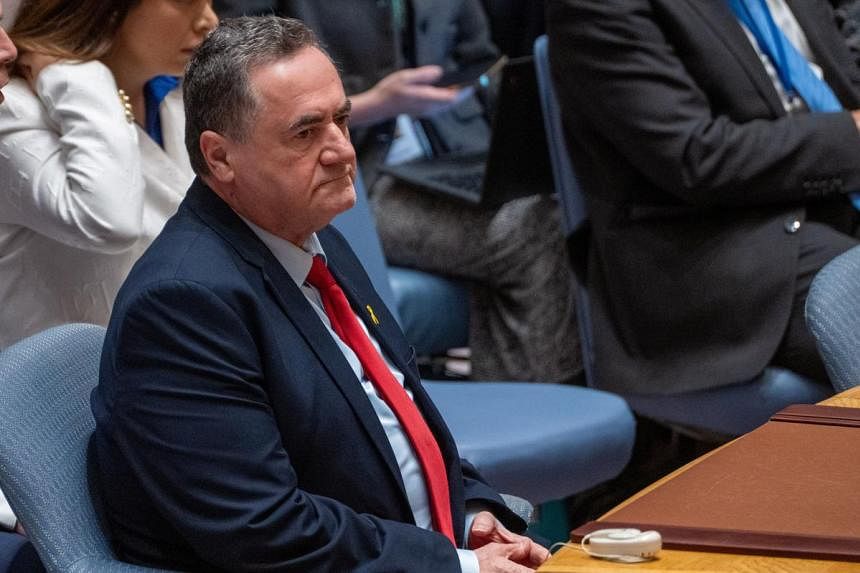Rod Such

Alexandria Ocasio-Cortez speaks as fellow Congressional representatives Ayanna Pressley, Ilhan Omar and Rashida Tlaib look on during a press conference on Capitol Hill
The Squad: AOC and the Hope of a Political Revolution by Ryan Grim, Macmillan Publishers (2023)
On 16 October last year, just over a week after Israel launched an openly declared genocidal assault on Gaza following the 7 October Hamas attack, Cori Bush, a Black congresswoman from St. Louis, introduced a resolution in the US House of Representatives calling for an immediate ceasefire.
A veteran of the Ferguson uprising against the police murder of Michael Brown and a longtime Palestine solidarity activist, Bush’s resolution was notable for a number of reasons. For one, it quickly gathered 17 co-sponsors in a congressional chamber previously known for slavishly genuflecting to the Israel lobby. For another, all the sponsors or co-sponsors were people of color. Not a single white representative in Congress signed on.
Among the 18 were the four original members of what has come to be known as the Squad, consisting of representatives Alexandria Ocasio-Cortez, Ilhan Omar, Ayanna Pressley and the only Palestinian-American member of Congress, Rashida Tlaib. A squad in army parlance can consist of four to 10 soldiers, and a platoon consists of four squads. What became apparent on 16 October was that the Squad – at least on this issue – had become a platoon, consisting of people who had the lived experience of facing systemic racism and white supremacy.
Journalist Ryan Grim’s The Squad: AOC and the Hope of a Political Revolution lays the groundwork, since his account ends in 2022, for understanding how this significant political development came about. Grim, the Washington, DC bureau chief for The Intercept who previously reported for the HuffPost, brings a sympathetic perspective to the subject while managing to illuminate much about the myriad factions and divisions within the Democratic Party, especially when it comes to Palestine.
Cracks in the wall
For decades, Palestinian American and solidarity activists have confronted the virtually unanimous, bipartisan support Israeli apartheid and militarism have enjoyed in Congress. Many Israeli officials, most notably current Prime Minister Benjamin Netanyahu, have long regarded the US Congress as a failsafe check on any pressure the executive branch might exert on Israel.
It has happened in rare cases that US foreign policy objectives in the Middle East have collided with Israeli interests, such as when President Barack Obama pushed for a nuclear accord with Iran while Netanyahu vehemently opposed it. In the period since 2016, however, when cracks in the wall first began to appear in this bipartisan support, those fissures have only widened.
An early example of the faltering influence of the Israel lobby appears in a widely reported revelation in Grim’s book: his disclosure that fresh off Ocasio-Cortez’s first election to Congress in 2018, the American Israel Public Affairs Committee (AIPAC) offered her $100,000 just for a meeting, “with much more than that to come.” He relates that Ocasio-Cortez and her staff ignored the overture from AIPAC and both the congresswoman and her staff were amused by it, in part because she had won a solid victory without the Israel lobby giant, a perennial supporter of the incumbent she had just defeated.
But as Ocasio-Cortez’s term in office began, she quickly experienced firsthand the pervasiveness and power of the lobby’s influence within Congress, particularly the roles of its point persons.
The congresswoman had raised the ire of Josh Gottheimer, a representative from New Jersey who reportedly regarded the new progressives in Congress as anti-Semites and sought to block their committee appointments and legislative agendas. As it turns out, Grim notes, Gottheimer’s agenda closely dovetailed with corporate interests and opposition to the pro-union and other working-class issues that the Squad championed.
One of the more interesting insights provided in The Squad is Grim’s account of the emergence of the Democratic Majority for Israel (DMFI). That group was founded by a former AIPAC staffer and by all accounts was virtually indistinguishable from it, except that DMFI is devoted to standing up for Israel within the Democratic Party.
Grim highlights DMFI’s role in the notable primary defeat of Andy Levin, a representative from Michigan, in the 2022 Democratic primary elections. Levin considered himself a Zionist and opposed the boycott, divestment and sanctions (BDS) movement advocating for Palestinian rights. But he offended DMFI by defending Omar and Tlaib from charges of anti-Semitism and by introducing legislation prohibiting the use of US aid to Israel for “efforts to annex or exercise permanent control over any part of the West Bank or Gaza.”
Grim notes, however, that Levin had also alienated many of the corporate backers funding DMFI with his prominent pro-labor activism. Marie Newman – the representative from neighboring Illinois who was also defeated in the 2022 primaries and was more closely aligned with the Squad – calls out this corporate role in the book: “DMFI, just to be clear, did not enjoy my pro-worker stance, my health equity stance. They did not like any of that, because it’s a very corporate group.”
Grim amplifies this point with a detailed account of the role played by cryptocurrency billionaires and private equity groups such as the firm Atlas Holdings and the finance capitalist Paul Singer in promoting and funding broader Israel lobby efforts.
DMFI and AIPAC also appear to be terrified of the concept of intersectionality and any hint of Black-Palestinian solidarity. The Squad dissects the campaigns of two Black women vying for congressional seats: Summer Lee, the Democratic Socialist activist from Pittsburgh, and Nina Turner, the former campaign co-chair for Democratic presidential candidate Bernie Sanders, a senator from Vermont.
Neither candidate was known as a vocal defender of Palestinian rights. Yet a single tweet by Lee linking the movement for Black lives with the struggle against injustice towards Palestinians was sufficient for DMFI to back her primary opponent. AIPAC raised the specter of her campaign to swell the coffers of its new political action committee, known as the United Democracy Project, by millions of dollars.
Lee had written on Twitter: “But as we fight against injustice here in the movement for Black lives, we must stand against injustice everywhere. Inhumanities against the Palestinian people cannot be tolerated or justified.”
Grim observes: “That was the extent of her public commentary on the question.”
In the end, what had looked like an easy victory for Lee, who at one time enjoyed a 25-point lead in the polls, turned into a narrow, under 1,000-vote victory. And what had appeared to be a runaway win for Nina Turner turned into a defeat in the special election primary of 2021, largely due to dark money spending by Israel lobby groups.
Even though much of the Israel lobby’s messaging against both Lee and Turner, through TV ads and other outlets, didn’t even mention their stands on Palestine, it was clear what motivated the Israel lobby.
What “worried me was her [Lee] equating the suffering of the Gazans and Palestinians to the suffering of African Americans,” Grim quotes a board member of the Pittsburgh Jewish Chronicle, arguably an information wing of the Israel lobby, as saying. “That’s one of these intersectional things. If that’s her take on the Middle East, that’s very dangerous.”
Under pressure
Equally dangerous, however, is the frequent equivocation, ignorance of Israel’s oppression of the Palestinians and apologetic reversals in position demonstrated by some members of the Squad as documented by Grim. The author shows how the Squad came under pressure from the Democratic Party leadership while also facing death threats from pro-Israel forces.
A prime example of backing down under pressure followed Omar’s response to a question about the Israel lobby when she declared “it’s all about the Benjamins,” slang for the $100 bill and a reference to a rap song by Puff Daddy. Accused of uttering an anti-Semitic trope about Jewish political influence being due to money, Omar quickly backed down and apologized without noting that numerous Jewish critics of Israel had expressed essentially the same critique without facing repercussions.
It’s a double standard numerous Black American political figures have faced over the years, most notably the 1979 forced resignation of United Nations ambassador and civil rights icon Andrew Young for arranging a secret meeting with a representative of the Palestine Liberation Organization. Even though Young had been told to meet with the PLO official, President Jimmy Carter asked him to resign after news of the meeting was leaked. Months earlier, a Jewish US diplomat had also made overtures to the PLO with no repercussions.
Numerous other examples of progressive candidates or officeholders backing down under pressure from the lobby and/or the Democratic Party establishment abound in The Squad.
Grim provides thorough accounts of opportunistic reversals in the campaigns of representatives Maxwell Frost of Florida and Greg Casar of Texas, and the unexpected stances regarding funding for Israel’s Iron Dome by Representative Ocasio-Cortez – who voted “present” after initially signaling opposition – and support for the funding by Representative Jamaal Bowman.
Interestingly, however, all four later co-sponsored the 2023 ceasefire resolution. And in response AIPAC reportedly expected to spend $100 million in the 2024 elections to defeat the ceasefire call initiators and others regarded as insufficiently supportive of Israel. By April 2024 CeasefireAction.com counted more than 170 members of Congress who support some form of ceasefire. Notably, at the same time, The New York Times reported that pro-Israel groups were spending less than expected to this point in the election cycle.
A sequel to The Squad is in order.
Rod Such is a former editor for World Book and Encarta encyclopedias. He lives in Portland, Oregon, where he is active in Palestine solidarity campaigns.


